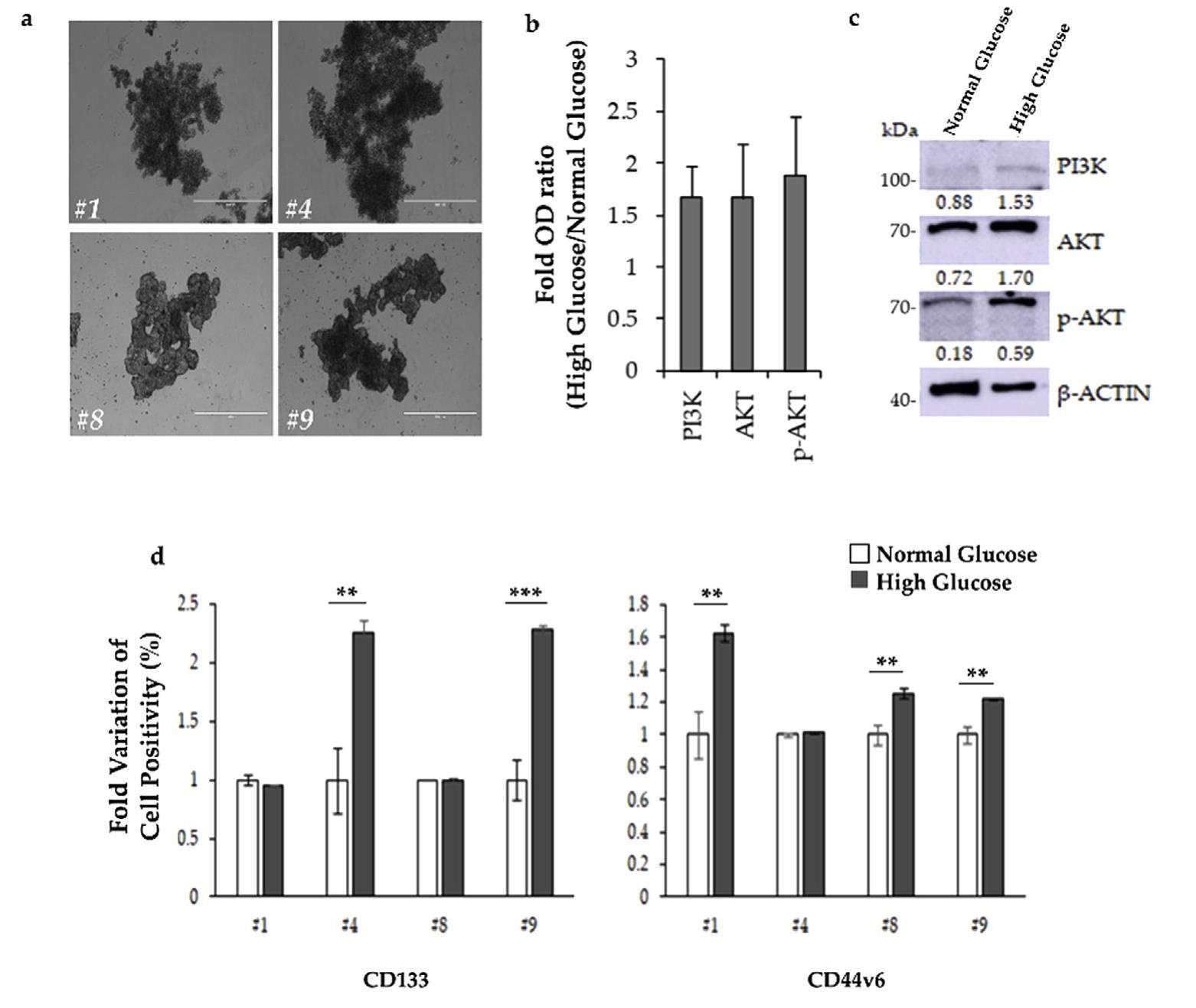
ROS and Lipid Droplet accumulation induced by high glucose exposure in healthy colon and Colorectal Cancer Stem Cells


Lipid Droplets (LDs) are emerging as crucial players in colon cancer development and maintenance. Their expression has been associated with high tumorigenicity in Cancer Stem Cells (CSCs), so that they have been proposed as a new functional marker in Colorectal Cancer Stem Cells (CR-CSCs). They are also indirectly involved in the modulation of the tumor microenvironment through the production of pro-inflammatory molecules. There is growing evidence that a possible connection between metabolic alterations and malignant transformation exists, although the effects of nutrients, primarily glucose, on the CSC behavior are still mostly unexplored. Glucose is an essential fuel for cancer cells, and the connections with LDs in the healthy and CSC populations merit to be more deeply investigated. Here, we showed that a high glucose concentration activated the PI3K/AKT pathway and increased the expression of CD133 and CD44v6 CSC markers. Additionally, glucose was responsible for the increased amount of Reactive Oxygen Species (ROS) and LDs in both healthy and CR-CSC samples. We also investigated the gene modulations following the HG treatment and found out that the healthy cell gene profile was the most affected. Lastly, Atorvastatin, a lipid-lowering drug, induced the highest mortality on CR-CSCs without affecting the healthy counterpart.
